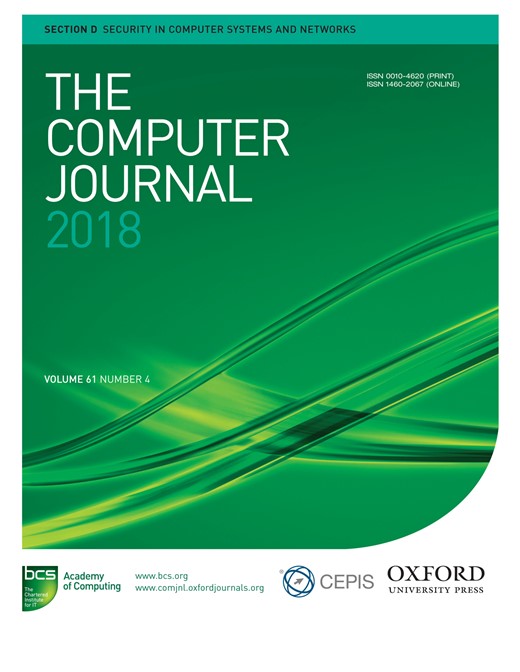-
Views
-
Cite
Cite
Yanwei Zhou, Bo Yang, Yi Mu, Continuous Leakage-Resilient Identity-Based Encryption without Random Oracles, The Computer Journal, Volume 61, Issue 4, April 2018, Pages 586–600, https://doi.org/10.1093/comjnl/bxy003
Close - Share Icon Share
Abstract
Provably secure identity-based encryption (IBE) schemes in the presence of key-leakage have attracted a lot of attention recently. However, most of them were designed in the bounded-leakage model, and might not be able to meet the claimed security under the continuous-leakage attacks. The main issue is that the most of previous leakage-resilient IBE schemes could not ensure the randomness of all elements in the ciphertext, because some elements can be written as a function on the private key of user; therefore, the adversary can obtain the leakage on the private key of user from the corresponding given ciphertext. In this paper, a new construction of CCA-secure IBE scheme tolerating continuous-leakage attacks in the standard model is proposed, and its security is proved in the selective-ID security model based on the hardness of decisional bilinear Diffie–Hellman assumption, which is a classical static assumption. In our construction, the adversary cannot obtain any leakage on the private key from the corresponding ciphertext, since all elements in the ciphertext are random in the adversary’s view. The striking advantage of our constructions is the key leakage ratio, which is the best one among the previous leakage-resilient IBE constructions.




